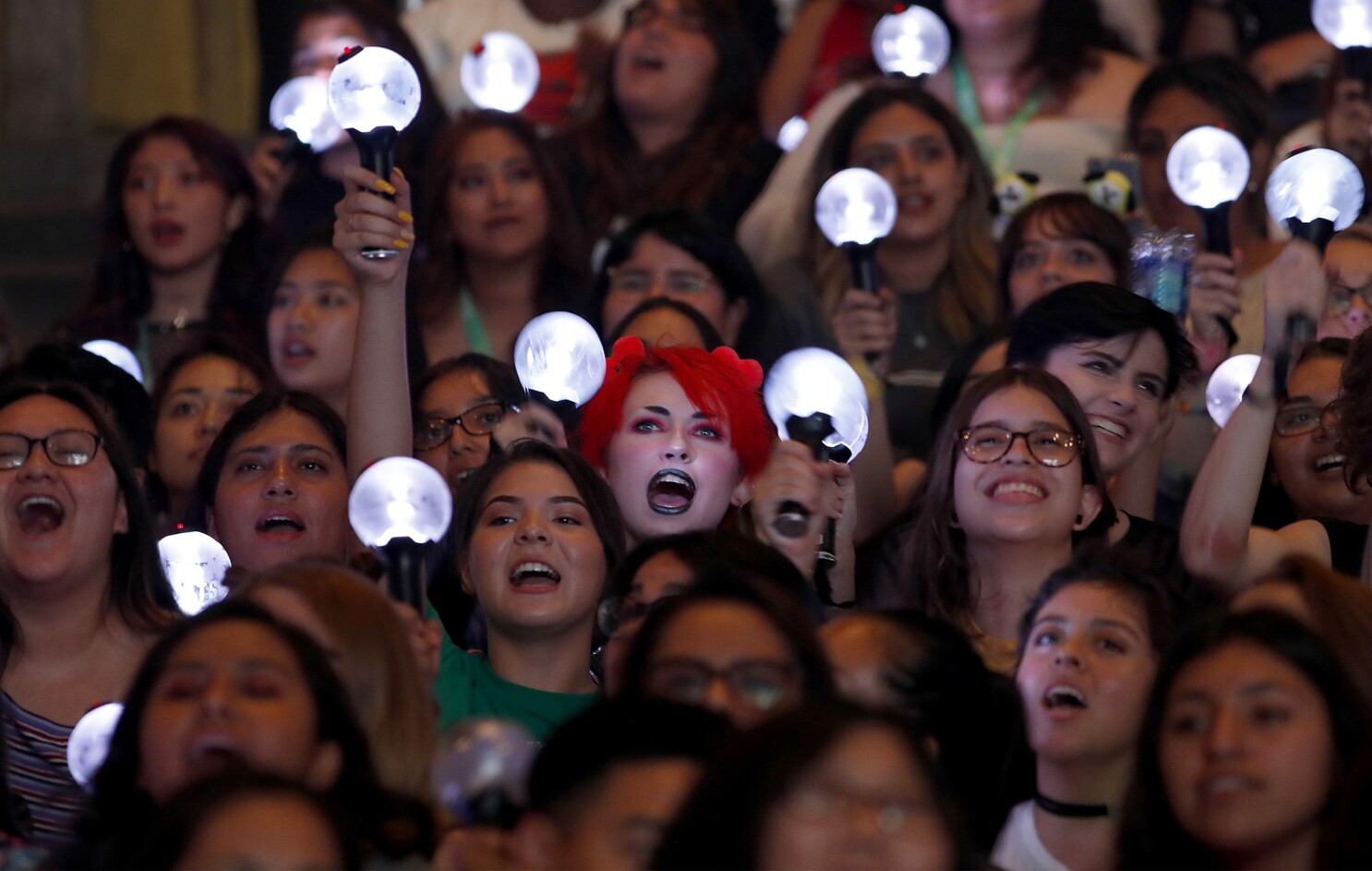(BLOG SERIES) Rebel Music - We Sing, Therefore We Are [Part 4.4]: Modern Music, Modern Culture, and Plato’s worry
 |
| A picture of a crowd of Pop fans |
Let’s borrow a concept from the anthropological study of society[i].
In primitive societies, and even in the not-so-long-ago Victorian era of the
United Kingdom, to say “society” doesn’t just mean “those who are living in the
present”. They always have an eye to their dead ancestors and to their unborn
future heirs. This is why these communities give emphasis to traditions, mostly
expressed through religious rites and ceremonies. Once again, as many know,
this anthropological truth, even before any modern study has analyzed it, was
picked up by Christianity, through its doctrine of the communion of saints, and
by following St, Paul’s advice: “[S]tand firm and hold fast to the traditions
we passed on to you, whether by word of mouth or by letter.”[ii]
With this mindset, society has given birth to the idea that we ought to give
reverence to occasions like birth, baptism, marriage, the sexual act, and even
death. It’s also interesting how we attached proper musical moods to most, if
not all, to these occasions.
This points to the notion of culture we have discussed before. To be
part of a culture requires participation in its public expression, which
implies training, sufficient knowledge of cultural happenings, and criticism
from time-to-time.
There can be more that we can say about this, but the summary I’ve
given suffices. Now, let’s focus our attention to Pop culture: it’s the exact
opposite of the kind of society we just described. Once again (as of writing
this sentence, I do not know how many times I’ve pressed on this point), Pop
culture is a culture of rebellion.
Pop culture is attached to the now:
the music now, the fashion now, the technological achievements now, the irreligiosity now, the relativism now. It has no regard for its dead
forefathers (if they do, then they won’t rebel from them) nor for their future
children (if they do, then abortion would’ve been illegal in places like the
United States, and respect for the sexual act through the shunning
contraception and sodomy would’ve been the standard).
Pop culture is also anti-authority. It just wants to be young, and
wild, and free; liberated from the reprimands of the elders of society. It
hates cultural training, because they are “inclusive”: everybody can join in,
there are no standards. Whether you’re a man or a woman, or whether you think
you’re a platypus or a fighter plane. Join us! There are no taboos, except
taboos themselves.
Because of this, the people that once valued truth, goodness, and
beauty has now accepted even the lie, the evil, and the ugly. Who cares? As
long as you do you and I do me, we are all okay.
The high standards in art that once dominated craftsmanship were set
aside. From Michaelangelo’s David statue
to a signed urinal. It doesn’t get any worse than this, dear reader. Or at
least we hope and pray.
All of this sudden moral and cultural decline has pop music as its
battle cry.
Ego, no longer God, becomes the center of the human expression,
something that’s so evident in modern music: I’m sour candy; so sweet then I get a little angry yeah![iii]
Honestly, who cares if you are sweet but you get a little angry?
It’s now time to recall Plato’s worry with regards to art and its
consumers: that people would not realize that art was only supposed to point to
a higher truth and that they would become fixated to a mere symbol.
 |
| Plato |
[i]
The following will be a short summary of the analysis in Scruton (1998), Youth
Culture’s Lament and The Cultural Significance of Pop
[ii] 2
Thessalonians 2:15


Comments
Post a Comment